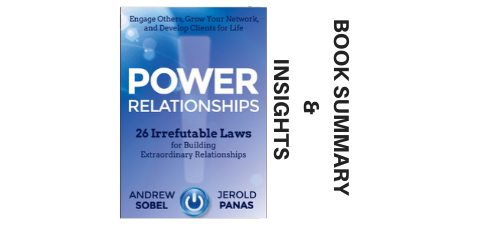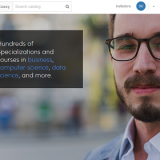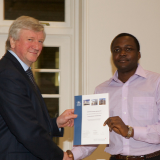Power Relationships (2013) Book Summary and Insights
Book Title: Power Relationships
Subtitle: 26 Irrefutable Laws for Building Extraordinary Relationships.
Publication Date: 2013
Author Names: Andrew Sobel, Jerold Panas
Book Summary
This is a book that recognizes the significance of building both personal and professional relationships. The author gives interesting guides (laws) to relationships and how to use said laws to attain success at life and work. The book also shows certain challenges that one can encounter and presents solutions. In Power Relationships, the author makes very creative illustrations and his explanations backed by compelling real-life stories which show how to apply each of the mentioned laws. This book enables us to understand, connect and build meaningful and successful power relationships that last. Follow the right laws and build vital networks. To find out more, please read the following insights.
Who Is This Book For?
This book is for those who aim to build and strengthen relationships with their clients, colleagues, and friends. It is for those who want to build and improve their networking skills. Those who want to achieve relationship success at work and life.
About The Authors
Andrew Sobel is the leading authority on client relationships and the skills and strategies required to earn enduring client loyalty. Andrew is the coauthor, with Jerold Panas, of the bestselling Power Questions (Wiley) as well as seven other acclaimed books on building clients for life. He has been featured in the Harvard Business Review, the New York Times, and USAToday. His clients include senior executives at leading companies such as Citigroup, Ernst & Young, Cognizant, and Booz Allen Hamilton.
Jerold Panas is the world’s leading consultant in philanthropy and the CEO of Jerold Panas, Linzy & Partners, the largest consulting firm in the world for advising nonprofit organizations and foundations on fundraising. Jerry is the author of fourteen bestselling books on fundraising and nonprofit management. He works directly with CEOs, boards, and development professionals around the world.
Buy Book: Support The Book Author And Our Work
Great books should be read, studied, and reviewed frequently, so reading the actual book may provide more value to you than the book insights on this page. Besides, this would support the work of the book author and what we do on LarnEdu. What could be better?
Important Notes
We get a small compensation from Amazon when you visit your nearest/local Amazon site via our affiliate link to purchase an item within 24 hours or if you add it to your cart and checkout within 90 days. This is no additional cost to you and supports our work.
The information on this page is meant to supplement the actual book(it is not a book review but distils the key insights or ideas from the book in under 5000 words). The content creator or LarnEdu does not necessarily support the views, thoughts, and opinions expressed in the text/book. Reasonable skepticism should be applied with any views, thoughts or opinions expressed/shared by the book author or content creator.
Reading the contents of this page does not guarantee specific results. The best lessons are achieved from taking consistent action in the real world rather than being addicted to the illusion of progress by getting stuck on reading an infinite amount of books or book summaries and insights. LarnEdu and the content creator accepts no responsibility or liability for the accuracy of the information on this page or how it is used.
Book Insights

Building relationships through great conversations and being unafraid to ask
The first law for building relationship is through great conversations. One author in this book reinforces this law through the experience of Bill Jenkins. One has to resist the urge to impress others. Instead, work towards improving your conversations with clients, colleagues and friends to build up relationships. Assess your current conversations. Do these conversations assist you and the other person? Instead of showing or pitching to others, turn each pitch or presentation whether it is to a prospective client or to your boss into a genuine give and take. Try to listen and show such by asking mindful questions around the conversation. It is vital to not just focus on fact only discussions. Bring emotions and interests into each conversation. Another law to building power relationships is being unafraid to ask. That they turned you down should not be a basis to just give up. Persistence is often times usually admired, however, avoid going too far so as not to pester and annoy people. From the story of one of the book authors and how he formed a relationship with someone who ended up being his mentor and lifelong friend, we can determine that when trying to connect with someone, mentioning something of importance to them, a book they wrote or perhaps an accomplishment they are proud of is a good way to start.
Networking and connecting with a few trusted persons even before you need it.
It is a well-known fact that networking is the key to a successful career. Many people have trouble with networking. You should know that in building power relationships it is not always about the quantity of your network but the quality. When you choose the right people to connect with, it is crucial to remember to stay in contact with them. When you reach out to someone after years of never being in touch, the person typically won’t go out of his way to assist you because you put no effort into sustaining the relationship. However, it is important to not only build your network based on the success of the person. Focus on growing a network slowly with the right people irrespective of how their ideas or characteristics differ from yours. It does not just end with creating a network of people, always endeavor to help and encourage those in your network. Also try to keep in touch. Once or twice a year, just scroll through your entire contact list, and be on the lookout for the names of people who you ought to be in contact with and connect with them.
Believing in people and helping in accomplishing their agenda builds relationships
Believing in someone can be one of the greatest gifts you can give them. So it is one of the mentioned laws towards building power relationships. We have all heard about the power of belief. Beliefs, just like thoughts are strong energetic forces and travel in the direction in which we channel them. Tell others how much you deeply believe in them, whether it be friends, family or colleagues. Stay consistent in your belief and express it as often as you can. Try as much as possible to avoid criticism and endeavor to encourage others. Another starting point for building power relationships is valuing the other person’s agenda as long as it is consistent with your values and ethics. Make it a habit to ask people about their agenda and try to understand what goes on in their world. One of the book authors uses the story of Richard Major in this book to illustrate how your relationship journey must start with the other person’s agenda irrespective of it being your client, boss, colleague or friend you are talking to. Find out what is important to them and come up with ways to help them accomplish their agenda.
Strong foundations, integrity and empathy build relationships
According to one of the book authors, there are no shortcuts for getting real and lasting results. You need the foundation of a relationship. This brings about one law of building power relationships, before you win a sale or gain commitment to anything important you must build the foundation. It is necessary to know enough about the other person and for them to know enough about you for the foundation to be built successfully. To achieve this foundation, you must first take out time to build a relationship of trust, honesty and wholeness. This brings us to another set law for building power relationships which is integrity. Tirelessly develop your reputation for integrity and it becomes an anchor for your relationships. It is worthy to note that although integrity takes time to build, you can lose it in just an instant, so try as much as possible not to compromise on your integrity. Consistently adhere to your set of irreproachable beliefs and principles. Keep your promises and commitments regardless of how small. It also goes beyond just integrity. You should think about and feel the pressures others might be under while trying to build a relationship with them. When you empathize with them, you come across as engaging and trustworthy and have followed quite another law of power relationships.
Deepen relationships by giving trust and changing environments.
Trust is very important in strengthening foundations and thereby building power relationships. With trust, you have to give it, to earn it. If you do not put any trust in the other person, they will not trust you and this can spiral into a vicious cycle of distrust which could even result in the other person losing confidence in themselves. When you assume that the other person has positive intentions from the outset, it helps in your willingness to start a chain reaction of trust. You do not just build trust with words; you build trust through your behavior. You should also make sure that as you give your trust, the other person continuously earn your trust through their actions. By building trust, you form a lifelong relationship. Another law is to switch up your environment regularly. Changing of environment intensifies and deepens a relationship. Get your clients into new relationship environments. Do not just settle for the usual place, switch it up a bit. Be imaginative and go about creating new relationship experiences.
Know the right questions and don’t be discouraged by an awkward start.
As one of the book authors said answers are important. But if you want to create the great conversations that build power relationships, you need to become skilled at asking thought-provoking questions. Not only does a good question create great conversations which aid in building relationships. It also places focus on the other person and gives you a chance to understand their agenda. This creates a deep personal knowledge and gives the other person a feel of being listened to. It is crucial to engage the other person and to keep the conversation focused on important issues. So think and plan ahead. Be bolder with your questions. We know that first impression can make or break a relationship. However, endeavor to withhold judgment even if you are a strong believer in said first impressions. If you have an awkward start, try to examine what about the person puts you off. And then find a common interest or any commonality and eventually you will find a connection. So do not expel a relationship just because it got off to a rough start. There is always that chance that the awkward situation might lead to a life-changing relationship.
Treat a prospect like a client and keep them by becoming a part of their growth and profits.
Imagine what it would be like treating every prospect as a client. Act like the future relationship you desire is already in place. Each time you contact or meet with such prospective clients, you offer ideas on how to improve their business. Show them how you have helped other of your clients surpass challenges similar to what they are facing. Introduce them to other relevant people in your network amongst other things. This shows an impact of generosity and that might just bring the person along. It should not just stop at gaining the client’s; you should aim to keep them. This you can do by showing how what you do directly supports your client’s growth. Focus on what the client needs to have done, understand the client’s agenda, talk about your value and also define yourself as in the business of improving your client’s condition. When your clients see that helping them meet their specific plans for growth and profit is your focus, it makes for a more meaningful relationship.
Building relationships and attracting people through curiosity, vulnerability and enthusiasm.
Create a powerful attractive force that draws others to you. This brings us to another law of building power relationships ‘make them curious’. When someone is curious about you, they reach towards you. They are eager to learn and know more. Curiosity is the desire to know more. Evoking curiosity creates an irresistible gravitational pull. This curiosity enables you get more of everything, ranging from inquiries, more clients and even more friends. Another attractive quality is enthusiasm. One’s enthusiasm influences everyone around them. It is an attractive force, and it attracts people towards you. The more of it you give, the more it spreads and draws more people to you. It inspires commitment, moving those around you into action. In building powerful relationships, enthusiasm cannot be overrated. It should be your secret weapon. The other quality for building power relationships is vulnerability. When you resist vulnerability, you deny people the opportunity to know you fully. It is also a key component in building trust. It ignites the opportunity for courage to rise within a person. Going by the words of one of the book authors ‘Vulnerability is power.’
Building relationships and showing care by giving truth, love and recognition
What really motivates people is personal recognition for a job well done. Encourage those around you and bring out the best in them by showing them you care. This you often do by giving recognition and praise. Praise them immediately, because the more time that passes reduces the impact it will have. Always opt to be specific in your praise. Describe exactly what it is the person is being praised for. Although criticism is useful in helping someone grow in their work, avoid mixing it with the praise so as not to nullify the recognition. Excellence is not driven by just praise alone. People also need both truth and love.
Key Quotes
Here are some key quotes from the book:
Conclusion
Building power relationships require putting in a lot of work, just like all other important relationships. Understanding that these relationships are not shaped inadvertently and processing and applying the mentioned laws in this book over time will determine whether one will thrive or wither in relationships.
Since You’re Here…
Great books should be read, studied, and reviewed frequently, so reading the actual book may provide more value to you than the book insights on this page. Besides, this would support the work of the book author and what we do on LarnEdu.
You can also support the work we do at LarnEdu work by making a one/off or monthly donation(via PayPal) for as little as £0.99 or sharing this content.
Do you have any feedback or suggestions? Use the comment section below or send us a message.















